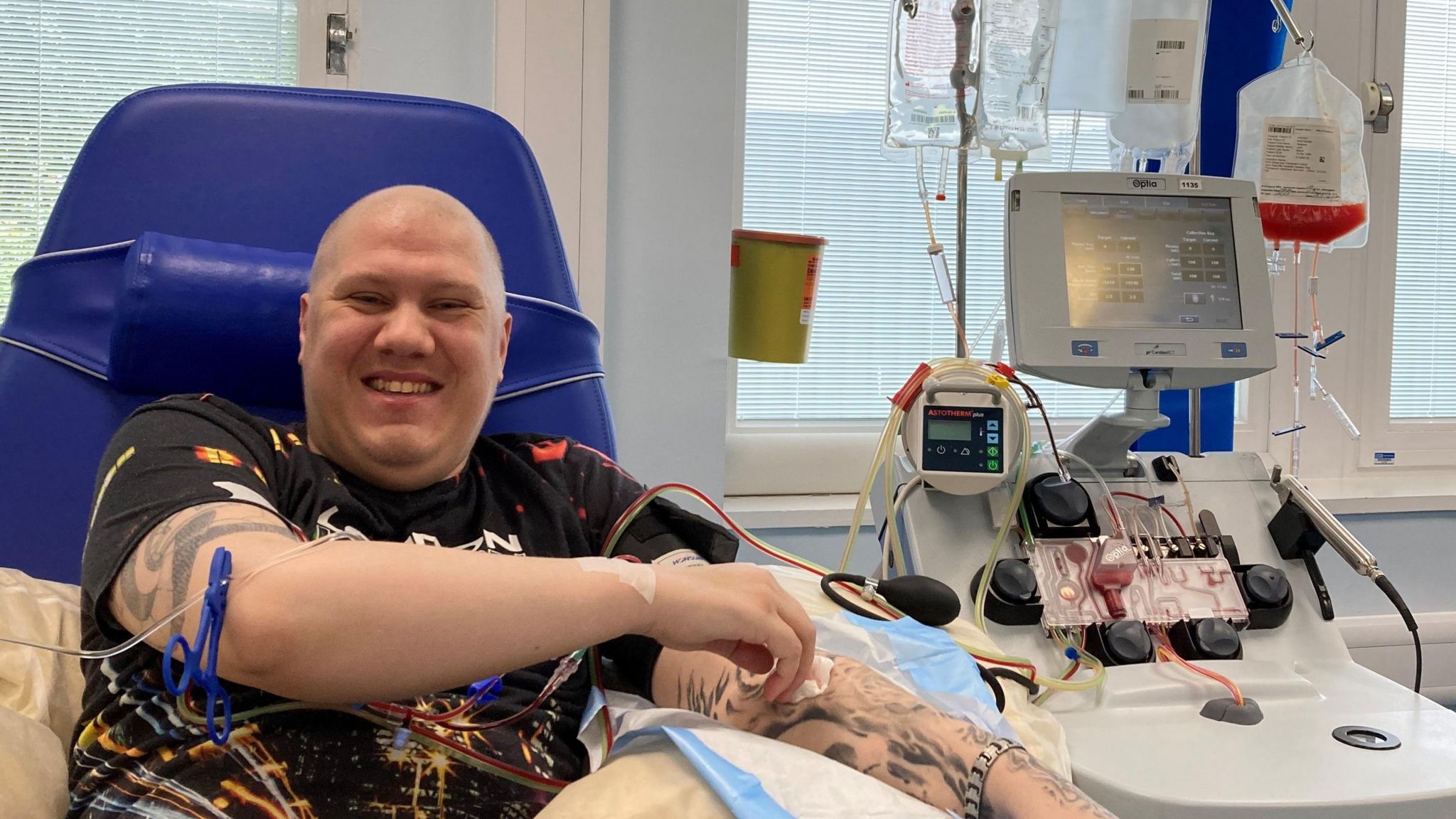Blood
Oxford cancer patient first to be given cutting-edge new treatment
At a glance
-
A cutting-edge therapy for cancer patients has been developed
-
Stephen Milton became the first person to receive the treatment at Oxford University Hospitals
-
The treatment has been shown in trials to cure some patients despite being complex and potentially risky
-
It is expected to be delivered to at least 20 to 30 patients each year
-
1 hour ago
A cutting-edge therapy has been used for the first time to treat a patient with blood cancer.
Stephen Milton, 29, has been receiving CAR-T cell therapy at Oxford University Hospitals (OUH).
The hospital trust said it was a highly complex and potentially risky treatment but has been shown in trials to cure some patients, even those with quite advanced cancers where other available treatments have previously failed.
The service is expected to deliver the potentially life-saving treatment to about 20 to 30 patients at OUH each year.
What is CAR-T cell therapy?
-
It is a type of immunotherapy that involves several steps over a number of weeks
-
First, the patient’s blood is taken and is sent off to a laboratory where it is “trained” to fight off cancer cells
-
The “trained” blood is referred to as CAR-T blood
-
The CAR-T blood is then transported back to hospital and the patient is administered with the CAR-T blood to treat their condition
-
CAR-T stands for chimeric antigen receptor T-cell
Source: NHS Website
Hospital bosses said it would “give hope to more people with blood cancer than ever before”.
Mr Milton, from Aylesbury in Buckinghamshire, said: “My body wasn’t responding to even aggressive chemotherapy so they suggested CAR T”.
“So far, I am doing well and I will have more tests.
“I know it’s a rare treatment so I was glad to get it. All the medical staff have been brilliant.”
His own T-cells, which make up part of the immune system, were collected by the specialist NHS Blood and Transplant Therapeutic Apheresis Services unit based at the John Radcliffe Hospital.
Prof Graham Collins, consultant haematologist and lymphoma lead for Oxford University Hospitals, said: “The development of CAR T-cell therapy in Oxford is vital to optimise the outcomes of patients with different types of blood cancer.
“Before now, patients have had to travel long distances and be away from home and loved ones for many weeks.
“The OUH and NHSBT collaboration enables us to deliver comprehensive care to blood cancer patients closer to home.”
Follow BBC South on Facebook, X, or Instagram. Send your story ideas to [email protected].
Related Topics
- Healthcare
- Oxford
- NHS
- Cancer

